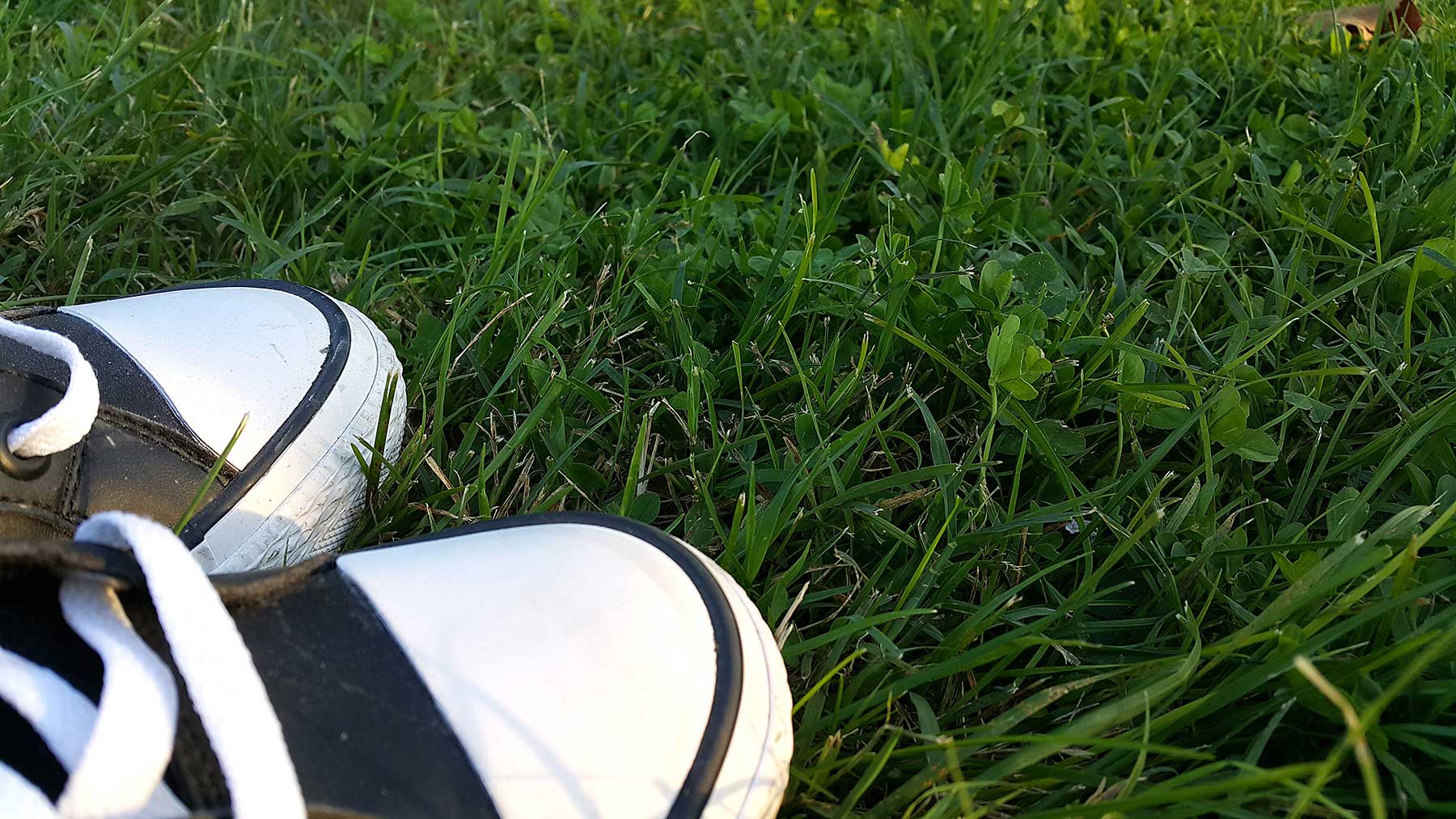Could You Be Allergic to Grass?

Spring and summer months bring a warm and welcome shift in the weather to much of the U.S. But, May showers also inspire blooming flowers, budding trees, and seasonal allergies.
In Florida, pollen-covered windshields are an annual reminder that hot and humid afternoons have arrived, and with them come watery eyes, sneezing, and itchy noses.
You might assume that fluffy yellow pollen triggers your allergies. But the grass is another seasonal allergen that may be the problem.
“In Florida, there’s grass throughout the year, but April through October is typically grass pollen season. That’s when the actual pollen allergen is the most profound in this region,” says Bjorn Herman, M.D., an otolaryngologist or ENT (ear, nose, and throat specialist) with the University of Miami Health System. “In other parts of the country, we think of grass allergies as an issue in springtime through summer and less so into fall.”
Exposure plus symptoms = an allergy
If you experience one or more of the following symptoms after being exposed to grass pollen, you most likely have a histamine reaction to this allergen. Grass pollen is a fine powder that is inhaled into the respiratory system.
Symptoms of grass allergy include:
- nasal itching
- runny nose
- stuffiness/congestion
- sneezing
- asthma resulting in chest tightness, coughing
- itchy, watery, red eyes
- throat clearing caused by postnasal drip
- sore throat (mild and intermittent)
- headache (mild and intermittent)
- skin itchiness and rash (allergic dermatitis inflammation in response to exposure to the skin)
“Simply sitting outside can trigger these symptoms,” Dr. Herman says. “People might not realize that even if you aren’t touching grass or even near it, you can still be affected by it if you have an allergy to grass pollen. Even if you’re on your patio, for instance, the wind can carry the pollen.”
Is this a reaction to grass or another outdoor allergen?
To confirm the cause of any allergy, you can go through allergy testing performed by an allergist or ENT specialist.
“As an ENT, I typically test for surrounding inhalant allergies,” he says.
“We can perform a skin prick or blood tests. Dermatologists who practice allergy testing can conduct skin patch testing for contact allergies. Health insurance often covers skin prick testing, whereas blood testing for an allergy might not be covered because it often requires justification for why a skin test cannot be performed.”
How are grass allergies treated?
The first line of defense is avoiding the allergen.
“We don’t want to keep people from going outside,” says Dr. Herman, but you can limit your exposure. When possible, do gardening or yard work on days with little wind or after it rains because the rain keeps allergens from floating in the air.
For patients with severe grass allergies, Dr. Herman recommends wearing a face mask on high-pollen days (some websites track pollen levels), so you can avoid inhaling a lot of grass pollen.
“It won’t hurt to wash your face and hands after direct exposure to grass, but this isn’t the main solution because typically, people have inhaled the pollen.”
Over-the-counter allergy remedies include:
- nasal saline washes (use distilled or boiled then cooled water)
- nasal saline sprays
- nasal steroid sprays (such as fluticasone)
- oral antihistamines (loratadine, cetirizine, and fexofenadine)
Over-the-counter steroid sprays can be combined with a prescription nasal antihistamine spray.
If medical management isn’t enough: immunotherapy.
This therapy is available in two forms: allergy drops/tablets and allergy shots.
Immunotherapy drops/tablets contain the grass allergen/antigens, and you place these drops under your tongue each day. This should gradually decrease your immune response to the allergen, reducing your allergy symptoms. Off-label use of the drops and the FDA-approved tablets are equally effective as allergy shots. Allergy shots do the same thing, but you visit the doctor’s office weekly, then biweekly or monthly injections.
With immunotherapy, you should see a decreased reaction to the allergen within a few weeks to months. For some people, symptoms return after stopping the treatment. But, when used for three to five years, these treatments typically provide relief, even after patients discontinue them.
“If medical interventions like sprays, washes, pills, and drops are ineffective, nasal or sinus surgery can help patients avoid recurrent sinus infections triggered by allergies,” Dr. Herman says.
“Surgery is an option for more severe reactions to an allergy, like grass pollen. Nasal turbinates (bony structures covered in tissue) can become inflamed. Surgery can reduce this inflammation. Some people develop benign growths called nasal polyps as a reaction to allergens. Nasal polyps can also be removed with sinus surgery.”
If you are bothered by a sinus, skin, or respiratory reaction that worsens during certain times of the year, speak with your doctor about your options, including over-the-counter medications and allergy testing.
Dana Kantrowitz is a contributor to UMiami Health News.
Originally published on: May 26, 2022
Tags: allergic to grass, grass allergy, grass pollen, seasonal allergies
